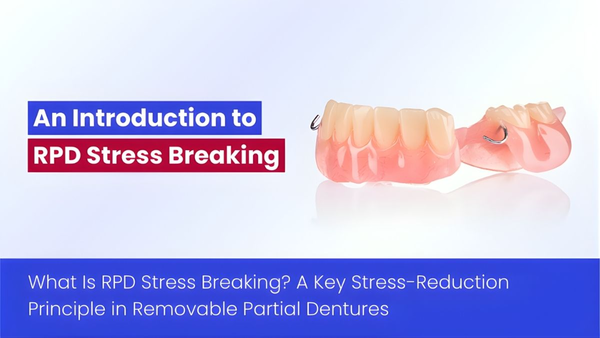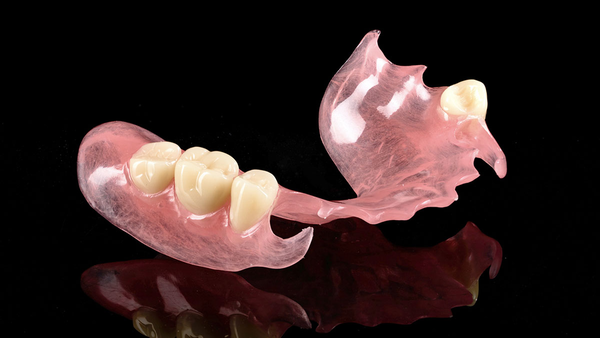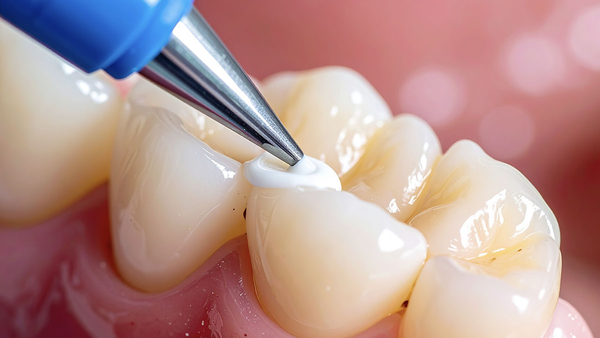Find out why titanium brackets are a premium choice in orthodontics, offering superior durability, reduced ion release, and patient-friendly hypoallergenic solutions.
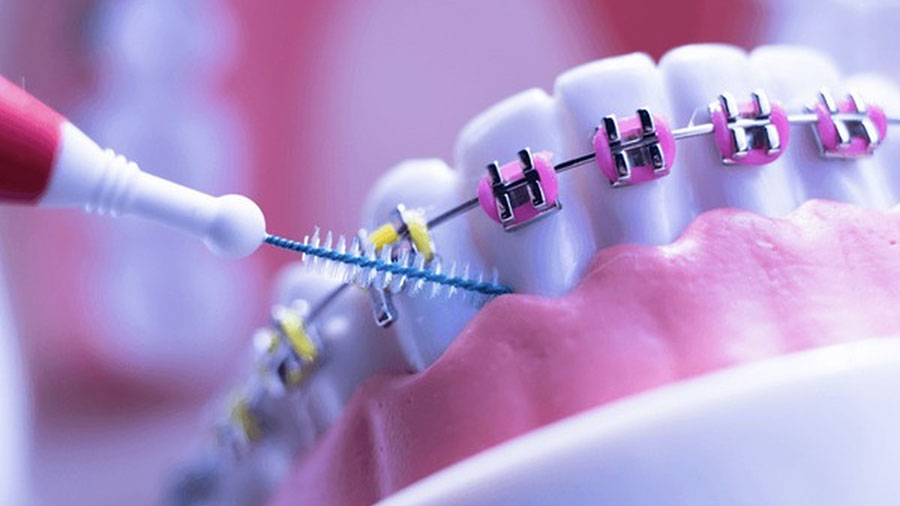
Table of contents [Show]
- Introduction to Titanium Orthodontic Brackets
- Material Properties and Composition
- Biocompatibility and Safety
- Corrosion Resistance
- Manufacturing Technologies
- Clinical Performance
- Advantages Over Other Materials
- Recent Advances and Innovations
- Limitations and Considerations
- Future Directions
- Conclusion
- About XDENT LAB
Introduction to Titanium Orthodontic Brackets
Titanium has become a premium material for orthodontic brackets due to its remarkable combination of biocompatibility, corrosion resistance, and superior mechanical properties. As a hypoallergenic alternative to stainless steel and nickel-containing alloys, titanium brackets are particularly beneficial for patients with metal sensitivities. This article provides an in-depth academic review of titanium brackets, exploring their material composition, clinical performance, manufacturing technologies, and future potential in orthodontics.
Material Properties and Composition
Chemical Composition and Structure
Titanium brackets are typically manufactured using pure titanium or titanium alloys, such as Ti6Al4V (titanium-6 aluminum-4 vanadium). These materials feature:
High Strength-to-Weight Ratio: Titanium is lightweight yet strong, making it ideal for orthodontic applications.
Crystalline Structure: Contributes to its durability and mechanical reliability.
Alloy Versatility: Ti6Al4V is commonly used due to its enhanced strength, fatigue resistance, and biocompatibility.
Mechanical Properties
Titanium brackets exhibit mechanical properties that make them superior to many other materials:
High Tensile Strength: Ensures durability under clinical forces.
Fatigue Resistance: Prolonged performance under repetitive stress.
Elastic Modulus: Provides flexibility without permanent deformation.
Force-Deflection Behavior: Optimal when paired with beta-titanium wires for precise tooth movement.
Biocompatibility and Safety

Allergenicity and Biocompatibility
One of titanium's standout features is its hypoallergenic nature, making it a safe choice for patients with nickel allergies or sensitivities. Unlike stainless steel brackets, titanium brackets do not release nickel ions, significantly reducing the risk of allergic reactions.
Ion Release Characteristics
Research has shown that titanium brackets release minimal metal ions into the oral environment compared to stainless steel or nickel-titanium brackets. This ensures:
Reduced Toxicity Risks: Safer for long-term use.
Patient Comfort: Minimal irritation or adverse reactions.
Corrosion Resistance
Passive Oxide Layer Formation
Titanium’s corrosion resistance is attributed to the formation of a stable passive oxide layer (TiO₂) on its surface. This layer:
Protects Against Corrosion: Even in the acidic and fluctuating pH conditions of the oral cavity.
Ensures Long-Term Durability: Prevents material degradation over time.
Comparative Corrosion Performance
Studies comparing titanium brackets to stainless steel and nickel-titanium brackets reveal that titanium offers:
Superior Resistance to Corrosion: Essential for maintaining bracket integrity in moist environments.
Enhanced Longevity: Ideal for extended orthodontic treatments.
Manufacturing Technologies
Metal Injection Molding has transformed the production of titanium brackets by enabling:
Precision: Accurate control over bracket dimensions and geometry.
Complex Designs: Creation of intricate shapes and features.
Cost Efficiency: Scalable production for mass manufacturing.
Surface Modifications
Advanced surface treatments are applied to titanium brackets to optimize performance:
Improved Bonding: Enhanced adhesion to enamel surfaces.
Reduced Friction: Smoother sliding mechanics for efficient tooth movement.
Clinical Performance
Friction Characteristics
Titanium brackets are designed to minimize friction during orthodontic treatment. Research indicates:
Optimized Sliding Mechanics: Reduced resistance when interacting with archwires.
Shorter Treatment Times: Improved efficiency in tooth alignment.
Bonding Strength
The bonding strength of titanium brackets is influenced by surface roughness and treatment. Proper bonding protocols ensure:
Secure Attachment: Reliable adhesion throughout treatment.
Minimized Debonding Risks: Consistent performance under clinical loads.
Advantages Over Other Materials

Versus Stainless Steel Brackets
Titanium brackets offer several advantages over stainless steel, including:
Hypoallergenic Properties: Ideal for patients with nickel allergies.
Better Corrosion Resistance: Long-lasting performance in the oral environment.
Lighter Weight: Reduces overall appliance bulk without compromising strength.
Versus Ceramic Brackets
When compared to ceramic brackets, titanium brackets provide:
Enhanced Fracture Toughness: Less prone to breakage under stress.
Easier Debonding: Reduced risk of enamel damage during removal.
Superior Mechanical Properties: Better resilience and flexibility.
Recent Advances and Innovations
Beta-Titanium Alloys
Beta-titanium alloys are being developed to improve the mechanical properties of titanium brackets. These alloys offer:
Increased Springback: Better adaptability to orthodontic forces.
Reduced Deformation: Maintains shape under clinical loads.
Nanostructured Surfaces
Nanotechnology is playing a role in enhancing titanium brackets by:
Improving Biocompatibility: Promoting better tissue integration.
Adding Antibacterial Properties: Reducing the risk of plaque accumulation.
Limitations and Considerations
Cost Factors
Titanium brackets are generally more expensive due to:
High Material Costs: Titanium is more costly than stainless steel.
Complex Manufacturing Processes: Advanced techniques like MIM increase production costs.
Aesthetic Considerations
While titanium brackets are lightweight and durable, they retain a metallic appearance, which may not appeal to patients seeking completely discreet orthodontic solutions.
Future Directions
Smart Materials Integration
Ongoing research aims to incorporate smart materials into titanium brackets, enabling:
Shape Memory Characteristics: Self-adjusting brackets for precise tooth movement.
Programmable Force Delivery: Customizable treatment mechanics.
Bioactive Coatings
The development of bioactive coatings for titanium brackets could:
Enhance Tissue Integration: Promote healing and biological compatibility.
Accelerate Tooth Movement: Through biological modulation of surrounding tissues.
Conclusion
Titanium brackets represent a significant advancement in orthodontic materials, offering unmatched biocompatibility, superior corrosion resistance, and excellent mechanical performance. Their hypoallergenic properties make them an ideal choice for patients with metal sensitivities, while advanced manufacturing techniques ensure precision and durability.
Although cost and aesthetics may limit their widespread adoption, titanium brackets remain a premium option for modern orthodontic treatments. With ongoing innovations in nanotechnology, beta-titanium alloys, and bioactive coatings, the future of titanium brackets promises even greater clinical efficiency and patient satisfaction.
About XDENT LAB
At XDENT LAB, we specialize in delivering high-quality dental lab solutions tailored to meet U.S. market standards. Our expertise in Lab-to-Lab Full Service, including removable and implant solutions, ensures that dental practices receive consistent, reliable, and FDA-approved products. With cutting-edge technology and a commitment to excellence, XDENT LAB is your trusted partner for dental lab outsourcing. Contact us today to learn more!
XDENT LAB is an expert in Lab-to-Lab Full Service from Vietnam, with the signature services of Removable & Implant, meeting U.S. market standards – approved by FDA & ISO. Founded in 2017, XDENT LAB has grown from local root to global reach, scaling with 2 factories and over 100 employees.. Our state-of-the-art technology, certified technicians, and commitment to compliance make us the trusted choice for dental practices looking to ensure quality and consistency in their products.
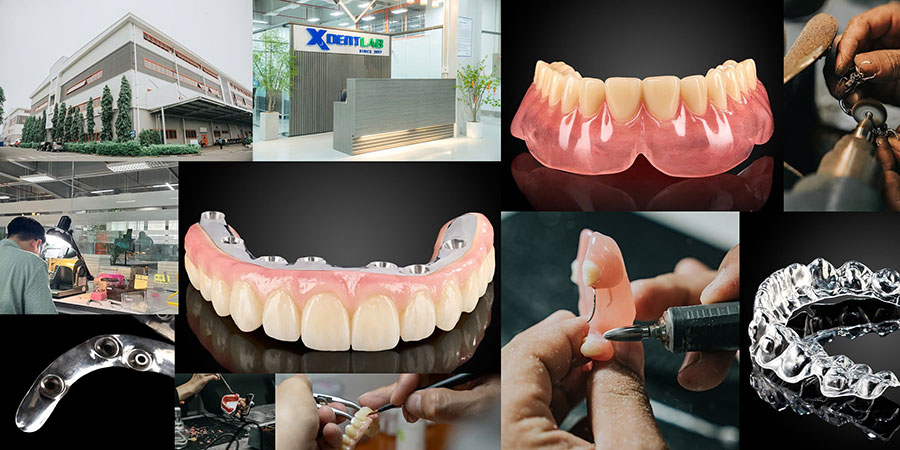
Our commitments are:
100% FDA-Approved Materials.
Large-Scale Manufacturing, high volume, remake rate < 1%.
2~3 days in lab (*digital file).
Your cost savings 30%.
Uninterrupted Manufacturing 365 days a year.
Contact us today to establish a strategy to reduce operating costs.
--------❃--------
Vietnam Dental Laboratory - XDENT LAB
🏢 Factory 1: 95/6 Tran Van Kieu Street, Binh Phu Ward, Ho Chi Minh City, Vietnam
🏢 Factory 2: Kizuna 3 Industrial Park, Can Giuoc Commune, Tay Ninh Province, Vietnam
☎ Hotline: 0919 796 718 📰 Get detailed pricing
Share this post:

